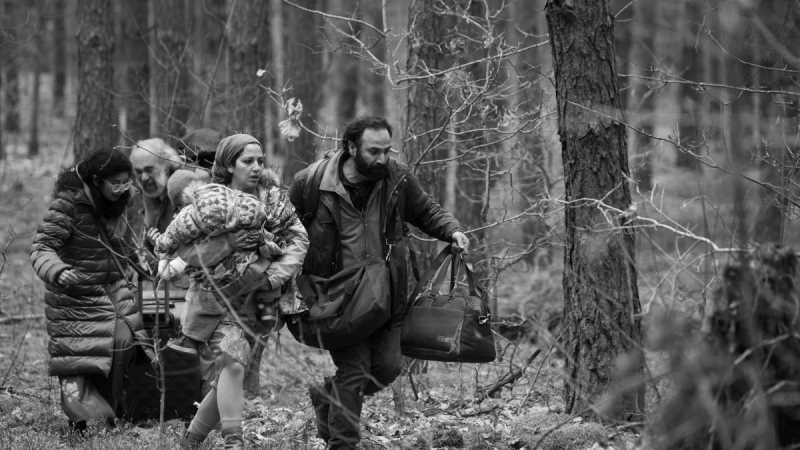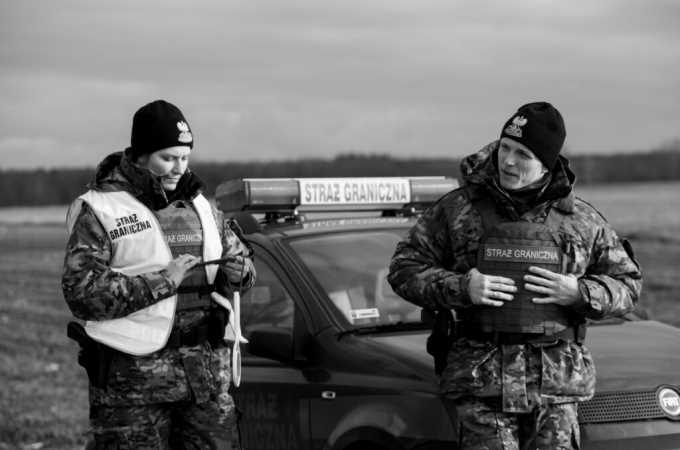Green Border
15If there’s one issue around the world that can cause tense debate its immigration. If it isn’t walls being built it’s boats making treacherous trips.
With so many wars and conflicts taking place, thousands of families find themselves displaced, keen to simply find a safe place to live, but as this extraordinary film shows, it’s never that easy.

Some went to great lengths to avoid pan handlers on their high street.
Arriving by plane to Belarus from Syria are Bashir (Jalal Altawil), his young family, and his father (Al Rashi Mohamad). Their final destination is his brother’s house in Sweden, with his brother planning their route to him meticulously, with a taxi waiting to take them to their next point in their journey Poland.
But the plans soon go out the window when they are stopped by the border patrol and told to make a run for it across the border. They soon find themselves as pawns, being treated like prisoners, ping ponged back and forth between Poland and Belarus.
They come across a group of activists in the Polish woods, but there is only so much that they can do, providing food and clothes, without getting themselves in deep trouble. And as Bashir and his family find out, they’re not the only ones caught in this political purgatory, with no end in sight.

You shouldn't be watching a movie on that thing, you need to see it on the big screen!
Polish director Agnieszka Holland doesn’t pull any punches as she examines the treatment of refugees in her homeland. The plight she portrays is profoundly moving and extremely harrowing in places, as she attempts to look at it from three points of view: that of the refugees, a group of activists trying to help them, and Polish border guards, breaking her film into four parts, plus an epilogue drenched in bitter irony.
Shot entirely in black and white only makes the material that more bleak, if that is possible, showing the stark realities of what refugees from the middle East and Africa have to endure, having being sold by propaganda of a safe and easy passage into Europe.
There’s also very light to be found in the film , literally and figuratively, making for a daunting two and a half hours, that will put you through the ringer emotionally, and then some.
It’s a powerful piece of cinema, that those who have strong feelings regarding refugees should be forced to watch, and if they still feel the same way after it, then there’s absolutely no saving them.
Holland’s film is an outstanding, brutal essay on the plight of refugees in Europe, which is both uncomfortable and essential viewing.
